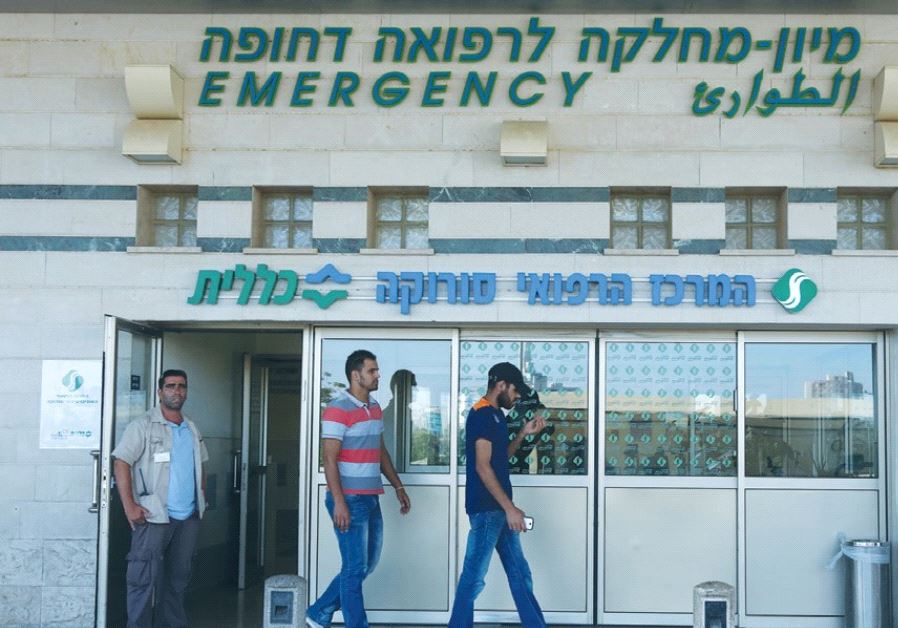Change of heart for formerly anti-Israel medical journal
The series describes the achievements and shortcomings of the Israeli health system and also makes recommendations to improve it.
 MEN EXIT the emergency room at Soroka University Medical Center in Beersheba.(photo credit: MARC ISRAEL SELLEM)Updated:
MEN EXIT the emergency room at Soroka University Medical Center in Beersheba.(photo credit: MARC ISRAEL SELLEM)Updated: